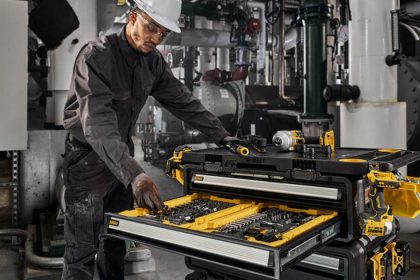The construction industry will need to change to appease put off Generation Z, who hate long work days, a new study has revealed.
Long hours, hard yakka and getting your hands dirty are all synonymous with a career in the construction trade.
But it’s those commonly associated attributes that millennials say are enough to put them off the industry altogether.
Excessive working hours, poor work-life balance and poor working environments were identified as some of the biggest concerns “Zoomers” flagged that are deterring them from a future in construction.

8-in-10 of Gen Z prioritise hobbies over work
The data collected by the Construction Industry Culture Taskforce (CICT) sought the thoughts of 136 NSW trainees, aged 17-23, who had spent two years in the construction industry while completing a TAFE course.
79% of the students said they would be holding out for a role which allow them time for non-work related roles such as hobbies and other interests.
Meanwhile, just under a third of the students believed this was even possible within the construction industry, after observing the long hours undertaken by construction workers.
More than a quarter of the “zoomers” said they believed the industry was incompatible with being a parent, while 7 out of 10 felt a construction career would take them away from home for long periods with little control over the hours they wanted to work.
Like it or not, the concerning data means construction jobs will need to change if it wants to address the 229,000 shortfall of skilled workers across the country.
And with 6 in 10 young construction workers refusing to commit their future to the tools, it’s becoming clearer the industry needs millennials more than they need the industry.
Industry needs Gen Z more than Gen Z needs them
According to Gabrielle Trainor AO, Chair of both the CICT and Infrastructure Australia, the findings are worrisome given the already acute shortage of workers available to deliver on the $237 billion infrastructure pipeline.
“This has serious implications for the industry’s productivity. Skills shortages translate to higher costs. We believe working hours, the dreadful statistics on health and well-being and on diversity in construction are interrelated and must be tackled together,” she told Build-it.
Ms Trainor says the construction industry will need to change to provide employees with a better work-life balance, who, that aside, are generally happy with other aspects of the job.
“While it was affirming to hear trainees say they loved working towards a common goal in a team environment and that they gained great satisfaction from seeing projects come to life, one deterrent came up time and again: the long working hours,” she said.
“Construction is in so many ways an exciting and immensely satisfying industry, and if it offered better work-life balance, including more flexible hours, and wherever possible a five-day Monday to Friday week, we would be significantly more likely to attract young people, notably young women.”
Other industry data shows the Gen Z complaints aren’t without merit, with CICT research revealing that almost two-thirds of current construction industry workers work more than 50 hours per week, with 59 per cent unhappy with their work-life balance.
Meanwhile, the NSW Building Commission recently reported that 63% of construction workers surveyed are considering leaving the industry, citing a lack of work/life balance as the main reason.
RMIT Professor Helen Lingard, who co-author of the study, said it showed a disconnect between what the younger generation seek in careers and what is available.
“This study demonstrates the gap between what trainees want in a career and what they think the industry has to offer,” she said.
However, excessive work hours weren’t the only factor identified by Gen Z during the research, with workplace relations, inclusivity, gender-diversity work environment and career development opportunities also identified as areas important to younger people.
CEO of the Australian Constructors’ Association (ACA), Jon Davies, says those areas would become more important when trainees decide where to work.
“If we fail to act on data such as this, the industry will not be able to attract and retain the diverse range of people it requires to refresh its talent pool,” he warned.
“The feedback from the next generation shows us exactly why a new culture standard is needed to lift the productivity and performance of construction and secure a productive and sustainable workforce for the future.







